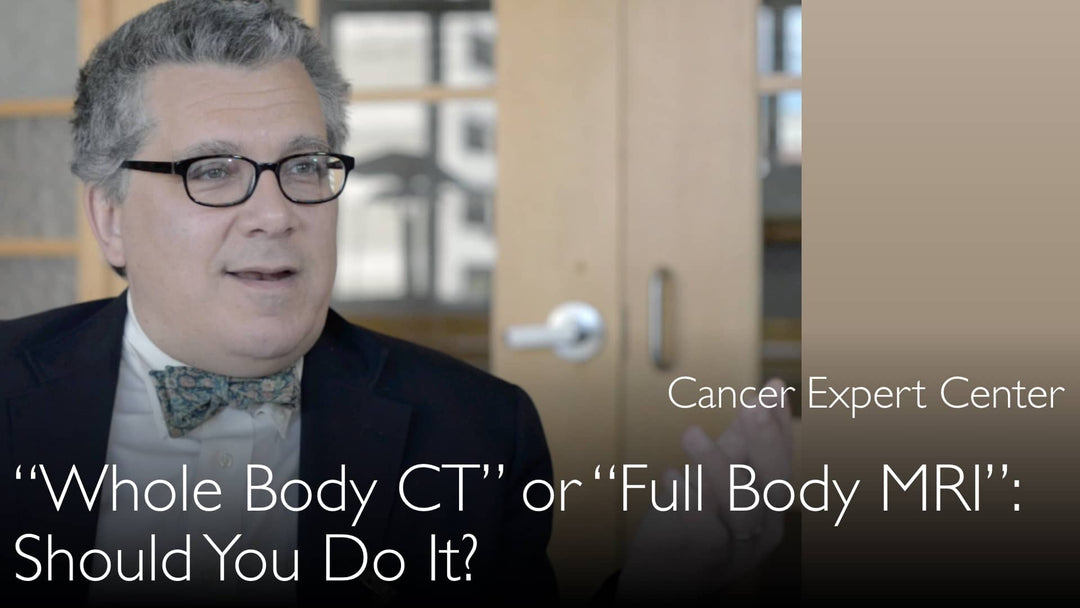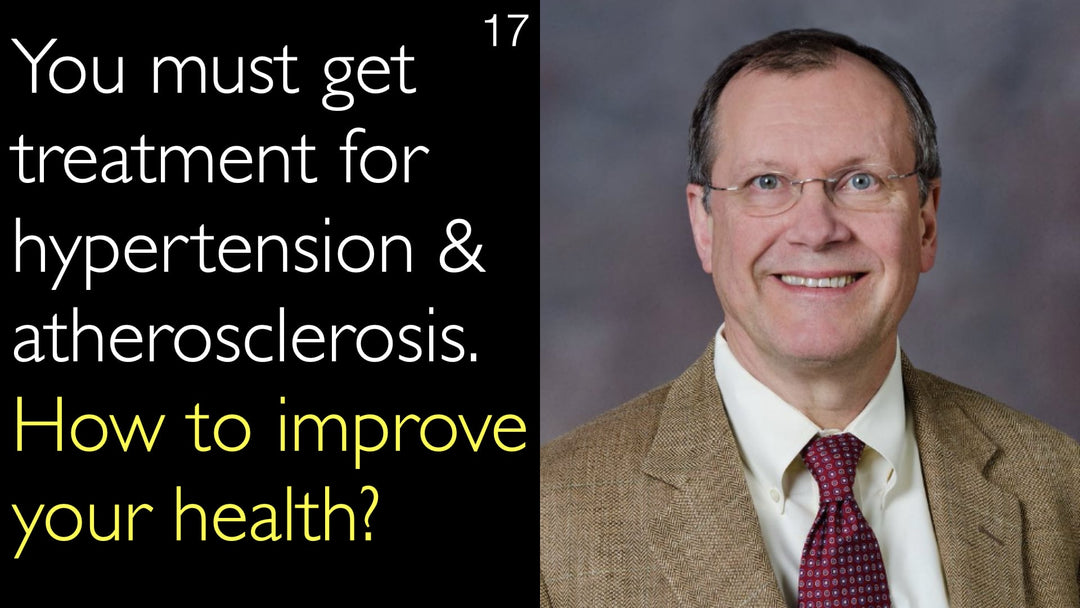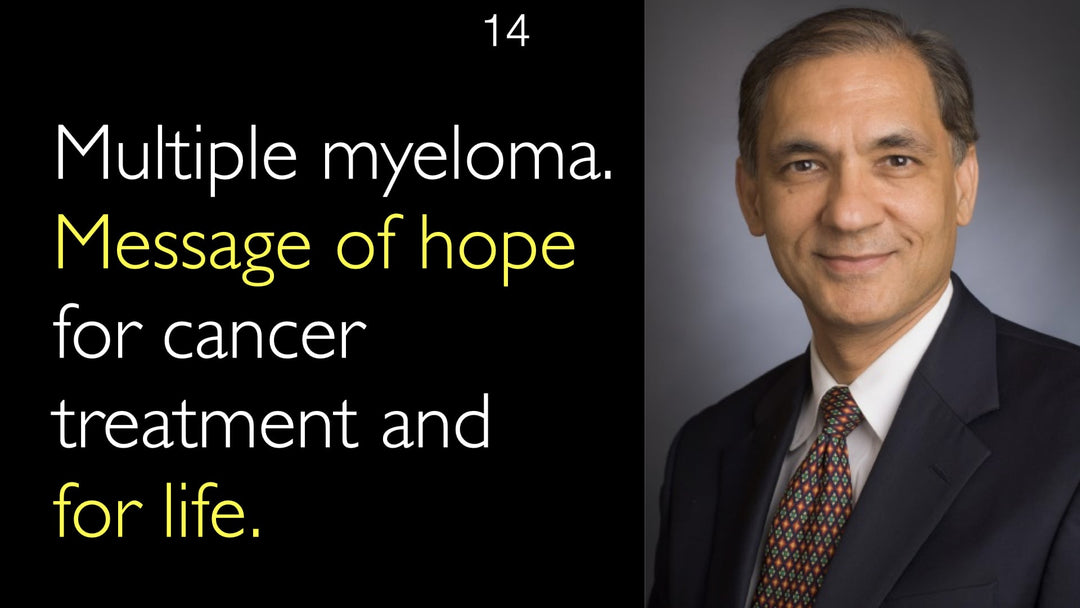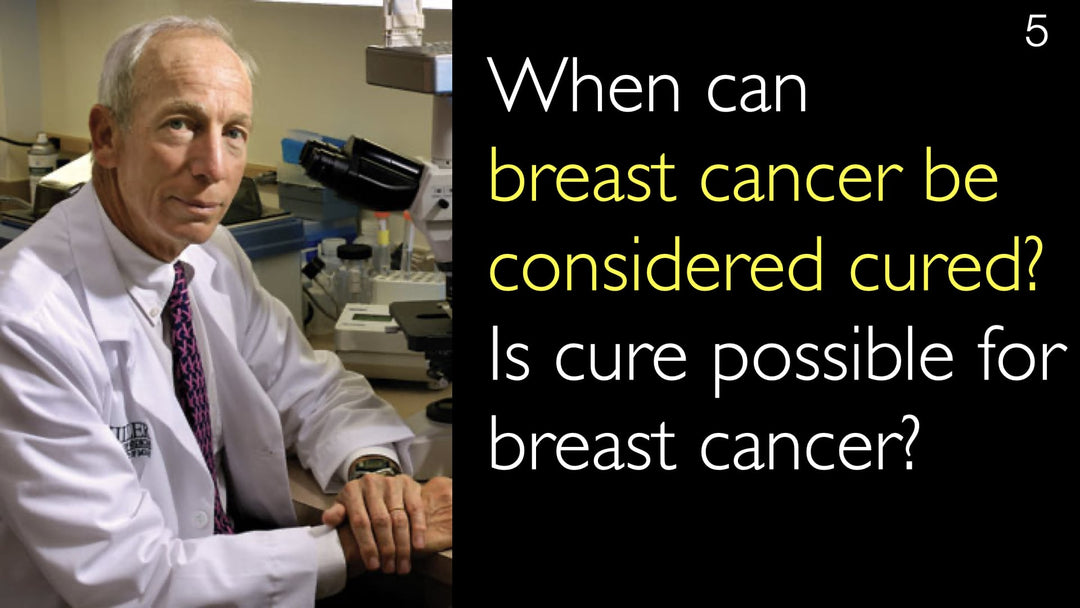Leading expert in CT and MRI radiology, Dr. Kent Yucel, MD, explains why whole body CT and MRI scans are not recommended for cancer screening. He details the significant risks, including radiation exposure from CT scans and the high rate of false-positive findings. Dr. Kent Yucel, MD, emphasizes that these screening methods lack evidence for preventing cancer deaths and often lead to unnecessary anxiety and procedures. He advises patients to prioritize proven screening methods and consultations with their primary care physicians.
Whole Body CT and MRI Scans: The Truth About Cancer Screening
Jump To Section
- Screening CT Risks and Lack of Evidence
- Whole Body MRI Problems and Limitations
- False Positives and Patient Anxiety
- Proven Screening Methods That Work
- Clinical Examination and Primary Care First
- Full Transcript
Screening CT Risks and Lack of Evidence
Dr. Kent Yucel, MD, a CT and MRI specialist, states there is very little role for CT screening. He explains that while a CT scan is fast and accurate, it delivers a significant dose of radiation. This radiation exposure poses a serious health risk, especially if a patient undergoes multiple screening scans over time.
Dr. Kent Yucel, MD, emphasizes a critical point: there is no evidence that a screening CT detects cancer early enough to make a clinical difference. The primary goal of finding cancer early is not met. Dr. Anton Titov, MD, facilitates this important discussion on the limitations of modern imaging for screening asymptomatic individuals.
Whole Body MRI Problems and Limitations
Dr. Kent Yucel, MD, also addresses the concept of a whole body MRI for cancer screening. He clarifies that a proper, diagnostic-quality MRI is not a single scan but a series of specialized sequences for each organ. A true comprehensive whole body MRI would take many hours and be intolerable for patients inside the scanner.
Clinics offering screening use abbreviated, low-quality scans with limited sequences. Dr. Kent Yucel, MD, notes that these shortened MRI scans lack the accuracy needed to reliably detect cancer. Similar to CT, there is zero evidence that screening MRI prevents cancer mortality, making it an unproven and potentially misleading tool.
False Positives and Patient Anxiety
A major problem with both whole body CT and MRI screening is the high rate of false-positive findings. Dr. Kent Yucel, MD, refers to these common, tiny lesions as "ditzels." The vast majority, over 99%, are completely benign and harmless. However, radiologists often cannot immediately confirm this from the scan alone.
This uncertainty triggers a cascade of events. It leads to patient anxiety, recommendations for additional follow-up imaging scans, and potentially invasive biopsies. These procedures carry their own risks and costs, all incurred for a finding that was almost certainly not cancer to begin with.
Proven Screening Methods That Work
Dr. Kent Yucel, MD, highlights that very few imaging tests have proven efficacy in preventing death. He identifies only two such tests that are backed by strong evidence. The first is mammography for breast cancer screening. The second is ultrasound screening for abdominal aortic aneurysm.
This underscores a key point for patients. Investing in unproven whole body scans diverts attention and resources from screening methods that are scientifically validated to save lives. Dr. Anton Titov, MD, discusses these evidence-based options to provide clear guidance for patients.
Clinical Examination and Primary Care First
The best approach to health screening begins not with advanced imaging but with a primary care physician. Dr. Kent Yucel, MD, and Dr. Anton Titov, MD, agree that a regular and thorough clinical examination is the foundation of preventative care. This should be complemented by traditional methods like specific blood tests when indicated.
Rushing to high-technology scans without a clinical indication offers no proven medical benefit. Patients are advised to prioritize a strong relationship with their doctor. This strategy is more effective and safer than seeking out direct-to-consumer whole body CT or MRI scans.
Full Transcript
Whole body CT, full body MRI: should you have it to screen for cancer? "Cancer screening" by full body MRI and full body CT is marketed to patients. Should I do whole body MRI? Will whole body CT relieve my worries about cancer in my body? A leading CT and MRI radiologist from Boston tells the truth about whole body CT and whole body MRI scans.
Whole body CT, whole body MRI: should you have it?
Dr. Anton Titov, MD: The truth about whole-body scans is a very low probability of finding important disease. A video interview with a leading expert in radiology, a CT and MRI specialist. What you need to know about full-body CT scan is that the dose of radiation exposure is a risk in itself. Is screening by whole body CT scan worthwhile? Not, according to a leading radiology expert and professional associations.
Why should MRI replace CT for whole body screening? Because MRI does not involve radiation. But whole body MRI screening is not recommended and does not find cancer in time. A medical second opinion on MRI findings ensures MRI interpretation is correct and meaningful. A medical second opinion also helps to choose the best treatment strategy for cancer diagnosed by MRI or CT scan. Seek a medical second opinion on cancer and be confident that your treatment is the best.
Whole body preventative screening MRI is a waste of time and money in most circumstances. When is a whole body CT scan needed? Usually in multiple trauma patients to assess hidden injuries, especially head trauma. Computerized body scanning by demand is not a good idea.
Whole body MRI, whole body CT cancer screening. Perhaps this conversation on screening can bring us to the popular topic, which is screening by whole body MRI or whole body CT. Many patients are interested in that, especially for cancer screening. What do you think of the validity and applicability of these methods for general screening for disease?
Dr. Kent Yucel, MD: I feel very strongly that there is very little, if any, role for MRI or CT screening. My opinion is also shared by important national organizations, for example, the American College of Radiology. Screening CT is probably better than screening MRI. There are a variety of reasons for it.
CT is much faster. CT is also probably more accurate. But it does have significant radiation exposure, especially scanning the whole body. So you have to weigh the risk of the radiation exposure with what the benefits are going to be, especially if you are going to do screening CT more than once.
It turns out that there is very little evidence that CT use for screening can detect cancer early enough, in enough patients, to make any clinical difference. Looking for cancer is the primary reason to do screening CT. So it does not help to find cancer early.
On the other hand, screening CT does find a lot of small lesions. We call them "ditzels" in radiology. So CT can find a lot of small lesions that the scan cannot tell whether they are cancer or not. But the vast, vast majority of these—99% plus percent of them—are benign lesions.
Screening CT creates a lot of anxiety for patients. After the first CT, there is usually a lot of additional imaging. There are follow-up CT scans, more radiation exposure. There are potentially invasive procedures to evaluate these small lesions. All this has no benefit. And CT has never been shown to be successful at detecting any kind of cancer early enough to be worth doing it.
Dr. Anton Titov, MD: And what about whole body MRI? Full body MRI is marketed directly to consumers to screen for cancer.
Dr. Kent Yucel, MD: Whole-body MRI: it is difficult to even understand what that means conceptually. Because an MRI of the brain or MRI of the liver or MRI of the heart is a lot of different kinds of imaging. So MRI is not one kind of scan. It is several scans put together to evaluate an organ.
Those scans can take half an hour to an hour to do to evaluate the brain. So you can imagine trying to evaluate the whole body with that kind of sophisticated MRI scan. It would be impossible to do. It will take hours. And no patient could tolerate the time in the tight space of the MRI scanner. And it would be inordinately expensive also.
So this is what patients (and clinics) do who arrange screening MRIs. They do abbreviated scans, shortened scans, with maybe just one sequence for all these parts of the body. And the problem with that is any one sequence is not going to be that accurate at detecting cancer or other serious problem.
Again, we have the same problem that we talked about with screening CT. There is no evidence that screening MRI can detect cancers at a small enough stage or with enough frequency to help anybody. There is zero evidence that screening with CT or MRI prevents death.
But similarly to CT, we have the same problem. We will still find lots of little things that we can't fully evaluate because they are so small. That will create additional imaging. That will create anxiety. It may create the need for additional invasive evaluation. And all for no benefit.
So the same risk-benefit ratio applies to both screening CT (whole body CT) and screening MRI (whole body MRI). Consensus of scholarly opinion, and my opinion as well, is that screening CT or screening MRI is not beneficial for patients to undergo screening CT or MRI scan.
The only kind in medical imaging that has proven efficacy in preventing mortality is breast mammography. Ultrasound screening for abdominal aortic aneurysm, the swelling of the abdominal artery, is also beneficial. Those are the only two imaging tests that have ever been shown to be effective at preventing death.
Dr. Anton Titov, MD: This is very important for patients to know. Because the best screening remains a regular and thorough clinical examination by the primary care doctor. Also using some serum profile blood tests, some traditional screening methods, could be useful. People should do that first instead of rushing to the high technology without any proven medical benefits.
Dr. Kent Yucel, MD: Exactly. It is very important to know.
Whole body CT, whole body MRI: should you have it? A video interview with a leading expert in radiology, a CT and MRI specialist. Pros and cons of full body scan?







